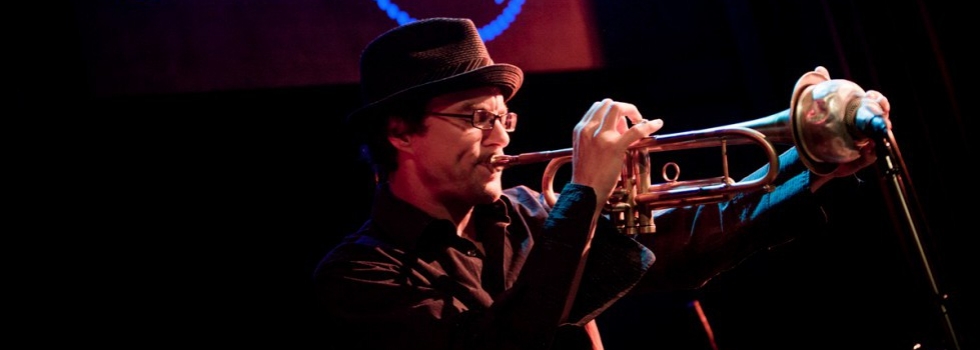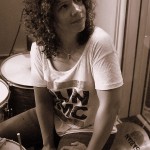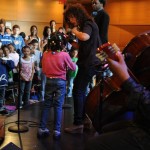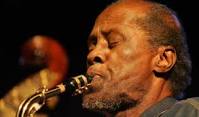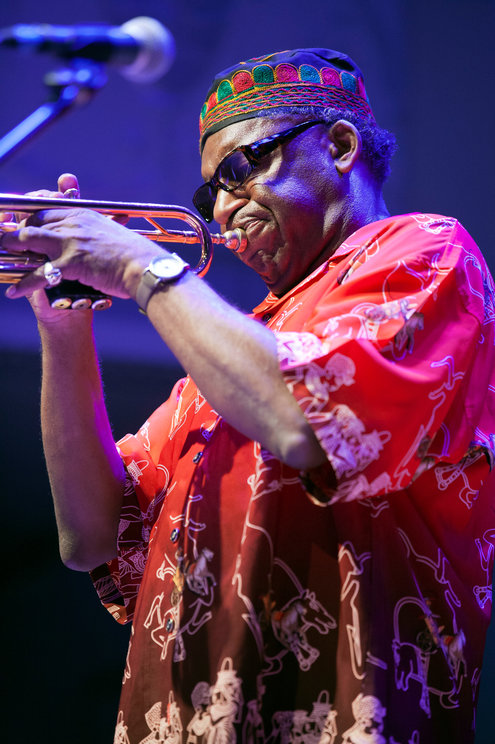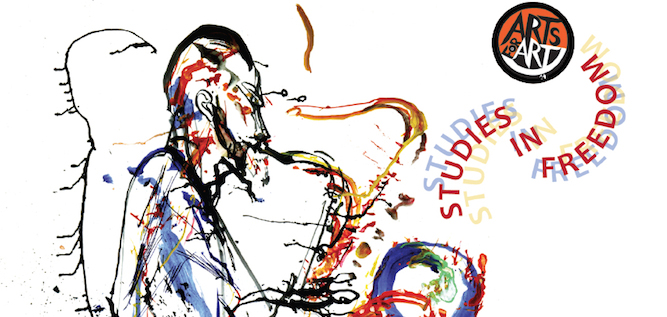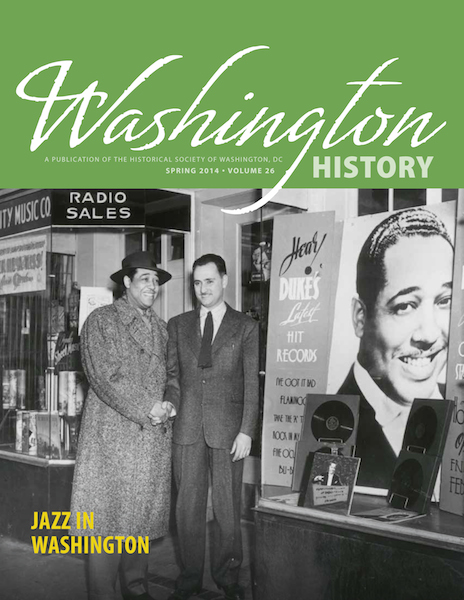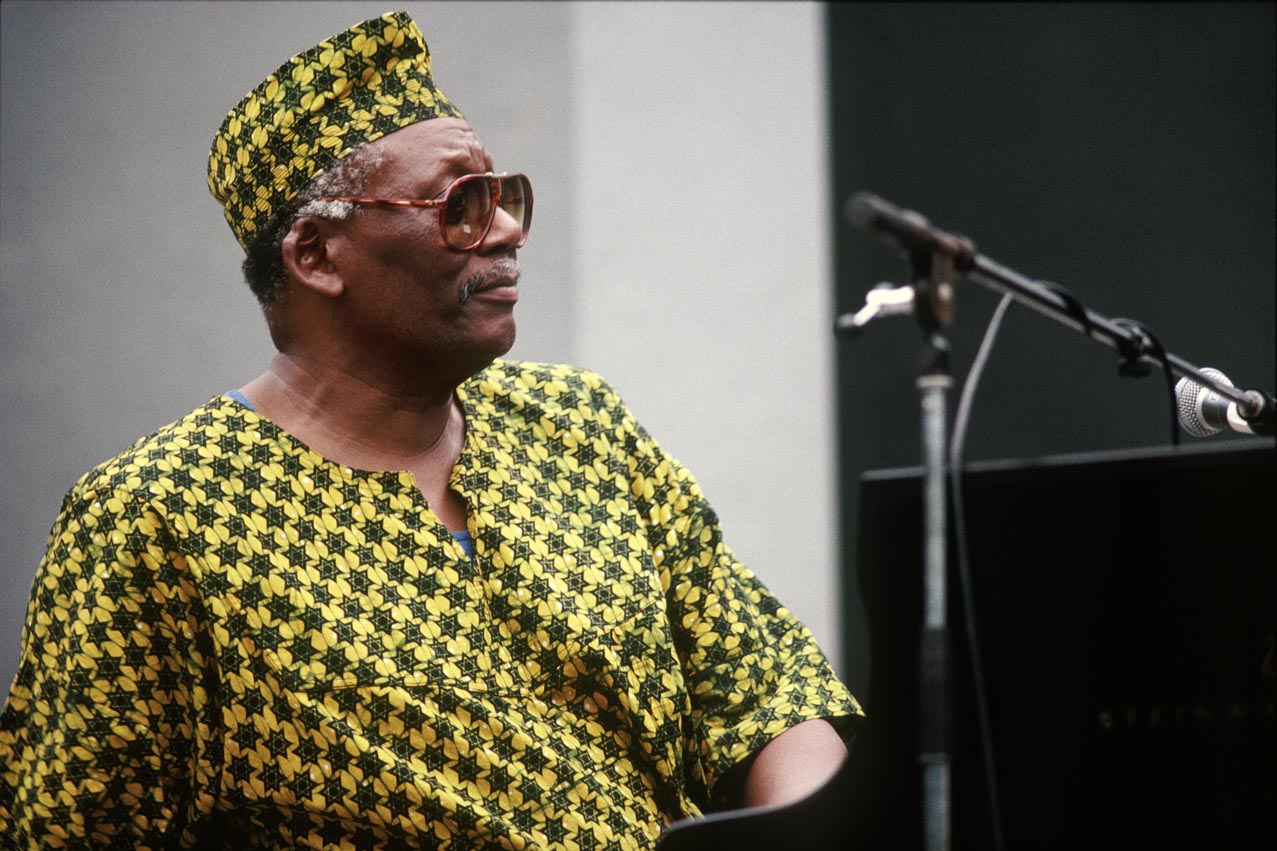Trumpeter Mark Rapp first came to my attention through our mutual friend & colleague, artist manager Gail Boyd of Gail Boyd Artist Management. At that point Mark had completed what turned out to be a lovely Billy Staryhorn-focused record with another mutual friend, the insightful tenor saxophonist-educator Don Braden. Since then Mark’s discography has increased with Good Eats, his tribute to NEA Jazz Master Lou Donaldson, which also features includes Braden’s tenor work. Musically he has also paid extensive tribute to the music of Miles Davis through a series of performances in the Carolinas. Here’s some video footage to give you more perspective on Mark’s playing and his MD insights.
The Independent Ear has always been interested in the enterprising musician, particularly those who choose to innovate and develop innovative enterprises from locations outside the magnetic sphere of the jazz mecca New York City. Based in South Carolina Mark Rapp’s latest endeavor is with the online music education platform known as Into the Shed. For additional perspective on this interesting development the Independent Ear turned to Mark for some insights.
What is your background Mark?
I grew up in South Carolina and discovered jazz only after high-school. I attended Winthrop University earning a Bachelors in Music Performance and moved to New Orleans to study under Ellis Marsalis earning my Masters in Jazz at the University of New Orleans. During my time in New Orleans, I won performance awards, made a CD, toured Europe, played the New Orleans Jazz & Heritage Festival and more. I moved to NYC and it took years for me to fight my way to where I was gigging regularly and made my debut CD as a leader with GRAMMY-award winning producer Jason Olaine. I played the Newport Jazz Festival, Fillmore Jazz Festival, Blue Note, Jazz Standard, Yoshi’s, Sculler’s, and many other top venues. I was managed by Michael Kline, then Gail Boyd, and lastly Suzi Reynolds – all top managers in the world of jazz. I was holding down a weekly gig at the Carnegie Club and made a tribute to Billy Strayhorn CD with Gerald Clayton, Sachal Vasandani and Don Braden. I moved to Geneva, Switzerland which began a 3 1/2 year stay in Europe where I made a couple more records and toured around as well. My last major recording was for Disney’s “Everybody Wants to be a Cat” in which they also featured Dave Brubeck, Roy Hargrove, Esperanza Spalding, Joshua Redman and others. I’m now living in SC and still working a band I co-lead with Derek Lee Bronston out of NYC called TSP. With TSP, we recorded a direct-to-vinyl record with bass great James Genus. Derek is also the co-developer of intotheShed.com.
What is Into the Shed?
In jazz, when a musician or student of music goes into the shed, they are said to be diligently practicing with a focused intensity beyond the norm. “The shed” is a time and a place when a musician works to break through whatever wall or limitations they are seeking to overcome and will only emerge when they have done so.
intotheShed.com was created to be your online place to learn from jazz greats with ease and accessibility like never-before. Imagine getting one-on-one music lessons from a variety of the best jazz musicians in the world. intotheShed.com is the place to connect and study with the best and to find artists you would not have imagined possible to reach. intotheShed is an all-in-one platform that makes it extremely simple and secure for these top artists to schedule, promote and sell lesson times, give high-quality live video lessons, and ideally creates never-ending opportunities to teach and inspire many.
There are many different ways to give video lessons, but there wasn’t a single platform that made the process dead simple and brought the best of the best all to one website. In just a few of a clicks, teaching artists can schedule a lesson, promote and sell it. The buying process is equally as fast and simple and the teaching artists receive payments direct to their bank account in 2 business days. Every step of the process is handled in one place. It’s well organized, secure and the quality of the video is amazing. In our testing, we’ve experienced no lag time and can play together in real time.
Given the many jazz education options available to aspiring musicians or hobbyists, what motivated you & your team to develop this service and what was your development process?
We wanted to create an all-in-one platform that made it fast and easy for the busy touring musician to provide high-quality live video lessons on the go. We wanted to create a service that helps these teaching artists generate income and opportunities to inspire students of jazz. We wanted to create a marketplace for students of jazz to have easier, more immediate access to amazing jazz artists. Lastly, we wanted to combine our passion for jazz, love of teaching and enjoyment of web development into a singular endeavor.
intotheShed.com would not be a reality if it weren’t for its co-creator Derek Lee Bronston. Derek is a guru backend and iOS developer and is responsible for breathing life into the blueprint and framing of the site I coded.
When I first moved to NYC, Derek encouraged me to learn web development as a way to maintain a steady income while hustling for performance opportunities. And that’s what I did and that’s what Derek did. We’ve been in web development for over 13 years and have each worked on every type of project you can imagine. During that time, Derek made CDs in a variety of genres recording with such legends as trumpeter Tom Harrell and getting his music placed on network television. It’s funny, he had a track used on Felicity. I had a track of mine used in a commercial for women suffering from hot flashes. Anyways, being in the same bands together, working and touring our TSP band, as well as, working on web jobs together, we developed a great working relationship and friendship.
The process for developing intotheShed.com was forged in these years of experience, late nights, and plenty of coffee. We worked day and night for months to produce and release version 1 and are steadily rolling out enhancements constantly making intotheShed better and better.
Do you envision Into the Shed as offering further education options that might even enhance the learning process for someone who is currently enrolled in or contemplating enrollment in a high school/college/university jazz studies curriculum?
It used to be, a student in a small town college would study with their regular teacher and maybe, once in blue moon, get a rare chance to hang for a few minutes backstage with some big name artist who came through on tour. But now, with intotheShed, that same student can access a plethora of big names on a weekly basis! It’s equally as personal and it’s a full-on, dedicated live lesson.
With so many budget cuts in music programs across the country, many colleges and universities can’t afford to fly in the big names in jazz, but intotheShed offers virtual masterclasses with these big artists. We can even facilitate virtual adjunct professors via intotheShed for schools who are looking to offer their students extremely high-end talent, but can’t afford to have such a teaching artist on campus. But with intotheShed, students can still meet with their adjunct professor on a weekly basis even if that professor is on tour in Tokyo for example.
As technology advances, how do you see Into the Shed keeping pace with that advancement?
Derek is a guru iOS app developer and is always on the cutting edge of technology. He actually launched one of, if not the, first all digital record labels way back in the early 90’s. He has a very creative mind and is always thinking ahead of the curve. So, I have no worries about intotheShed keeping pace, if not the one setting the pace, moving forward. intotheShed is our baby and we’re always looking for ways to make it the best.
Mark Rapp and his Into The Shed partner, guitarist Derek Lee Bronston, performing “Blue in Green” with Nate Smith, drums and James Genus, bass
To learn more visit: WWW.INTOTHESHED.COM

